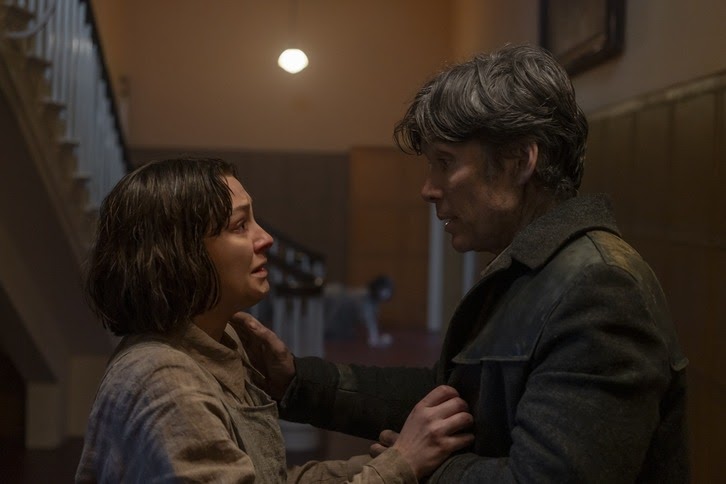<

little things like this Adapted from a quietly powerful novel by Claire Keegan, it tells the story of the evils of the Catholic Church in Ireland, and their unchecked power and influence that has led many to refuse to speak out against them. This is thanks to Cillian Murphy’s quietly powerful performance as the leading man, who says a lot but says nothing, bringing his ability to control a room to the film. Peaky Blinders A more nuanced performance that’s arguably better than anything Christopher Nolan has produced Oppenheimer This earned him an Oscar. He plays Bill Furlong, a family man who delivers coal to various homes and neighborhoods during the winter. Bill’s route leads to the local monastery – where he sees something he shouldn’t. This forces him to question everything, not just their place in the community, but his own past.
Through flashbacks we learn about Bill’s upbringing, the loss of his mother and absentee father, and the traumatic experiences associated with Christmas, as a man who asked for little and asked for little. However, when he witnesses the horrific treatment of a young girl, he knows he cannot ignore it, even if it damages his standing in the local community and the future of his own children. We learn from the beginning that Bill is a kind, caring man – he gives some change to a boy who says he’s looking for a lost dog and offers him a ride home out of charity. When he witnesses the abuse of a young girl in a convent, this paves the way for something more subtle. But there’s nothing he can do – the Abbey threatens to revoke his order immediately, while local pub landlady Helen Behan warns him not to defy them. They have their fingers in every pie. The way Bill Flo treats his staff at Christmas reminds us once again what a great guy he is – it’s one of the best, and we know his relationship with Abbey will be as good as it gets before the end of the movie A turning point. But what was his turning point?
It tells the story of the abuse of power by Catholic nuns and what happens when a society stands by and accepts evil for what it is. The film tells the story of Ireland’s Magdalene Laundries, one of the most abusive industries in Western Europe. It doesn’t quite speak to their horrors – research done after the film sent me down a horrific rabbit hole rarely taught in the UK – and a novelistic approach guided by its thematic material does suit the characters better as an adaptation Researched, rich and well-paced. It doesn’t need a shocking quick start – we get to see Bill’s daily life, we see him running, we see him working his day job – we see his past. And then we see what happens when he strays from it—the world is turned upside down.
Tim Milantz’s flashback structure is formulaic, for example, as Christmas approaches we learn why Bill isn’t looking forward to it that much. When he goes to the barbershop, we are reminded of his past there. It’s a split narrative that reveals the character’s upbringing but deviates from the main narrative. His main antagonist is Emily Watson’s Spider-Man, the controlling Dean – who behaves in a way that’s instantly terrifying. The horrific portrayal of the church is horrifying from the moment Bill enters the Magdalene Laundry, with scenes in which Abbess Bill and young woman Sarah, played by Zara Devlin, are surrounded by fire and immediately find themselves relying on each other’s talents. Survival, this scene is painful.
For those who want an uplifting Christmas movie little things like this The opposite is true. Bill is almost defeated from the moment the film begins and grows very little as the film progresses – it’s about uncovering a past that hasn’t quite faded yet. He was quiet and vulnerable. This makes the film ten times more powerful because of it. I recently discovered that the sign of a good movie is that its audience is fifty years older than you; this one is in spades. There’s nothing wrong with getting a glowing endorsement from the movie theater usher.

